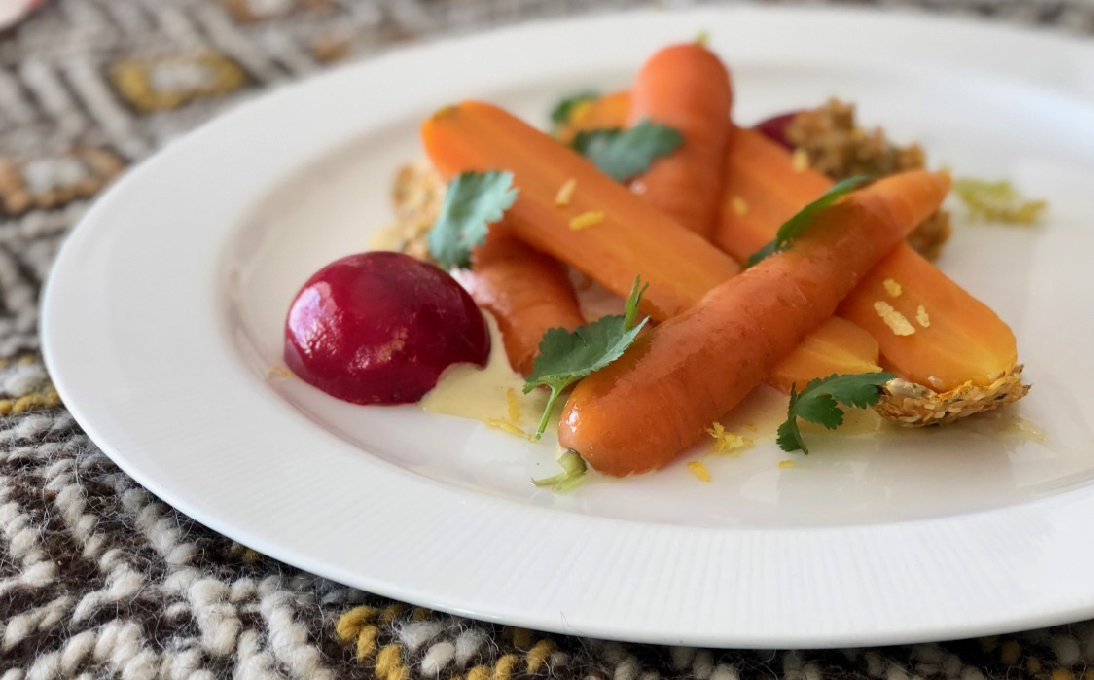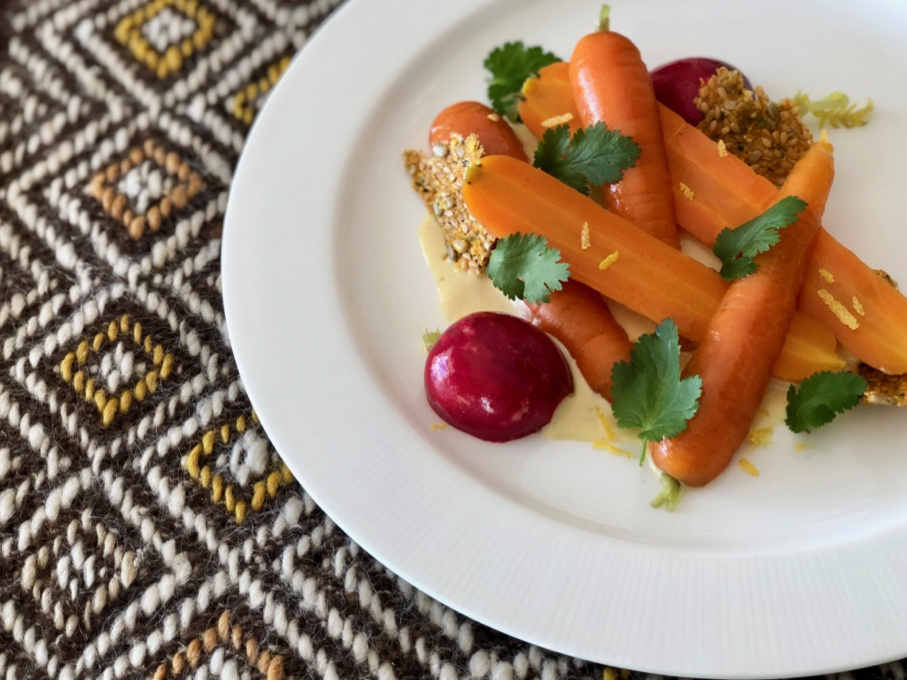
Our friend Manel Muntada came to see us at the end of Summer in our Strait of Gibraltar’s place. Manel is the author of the cumClavis, a fascinating mirror blog of his work as a Knowledge Manager. Avid reader, excellent guest at the table and great conversationalist, Manel is a man with vision and has been organizing his weekly meals for some years now. On Saturdays he goes shopping to the Guinardó Market in Barcelona and batch cooks everything to have his own meals at hand. That is, he is a true quotidian cook. He asked us to show him new recipes to incorporate into his variations of vegetable dishes and we have put him to work in the kitchen while we prepare this sumptuous Tangier Carrots Salad .
While cleaning the carrots, he tells us about his last reading: “Anthropocè: La Fi d’un Món” (Anthropocene: The End of a World) by CSIC researcher Daniel Closa. The Anthropocene is our current geological era where the effects of human action on the planet are causing terrible changes: massive deforestation, seas and rivers of plastics, lands and seas polluted with pesticides and chemicals, global warming and its consequent climate change, etc., etc. The list is sadly long and reminds us, these days, of the upcoming Global Climate Strike, on September 27. Do not hesitate: participate!
Manel tells us a scary anecdote mentioned in the book. When paleontologists researched the Pleistocene fauna (the geological era before the current one) they found fossils of mammoths, bisons, rhinos and other animals called large mammals and characteristic of the period. When scientists of the future investigate the Anthropocene they will discover millions of fossils of a single species: the Gallus, Gallus, better known as chicken. Chicken bones will be the characteristic fossils of our time. No comment.
To be part of the solution, we encourage you to cook new vegetable dishes and we bring you a classic recipe of the cuisine of the Straits, the carrot salad. It is a dish with many variations on both sides of the Mediterranean: in Morocco it is seasoned with cinnamon, cumin, lemon and cilantro; in Cádiz with garlic, parsley and sherry vinegar; in the Portuguese Algarve, with parsley, cumin and black olives. In any case, the secret is to steam the carrots and leave them al dente. That is, with a crunchy yet tender texture. The technique, in the text of our recipe today.

In our take, the Tangier Salad, we cut the carrots in halves to see their full shape and colors and to enjoy the succulent bite. The result is a salad of flavors and textures from the southern Mediterranean. Lemon and coriander wrapping a creamy sauce with hints of garlic and cumin. A tribute to the two seas merging in front of the city of Tangier and the peoples that have inhabited these lands.
- 10 medium sized carrots
- 2 cloves of garlic
- 8 radishes
- 1 lemon
- 1 bunch fresh coriander
- For the dressing
- ½ teaspoon cumin powder
- 2 tablespoons lemon juice
- 4 tablespoons EVOO olive oil
- 1 tablespoon orange juice
- 1 tablespoon raw Tahini
- Sea salt
- Clean the carrots by brushing them (or peeling them) leaving the tails. Cut in half lengthwise.
- Steam (no salt) the carrots and garlic cloves leaving them al dente (8-10 minutes).
- Drain and let the carrots rest in a bowl with ice water.
- Chop the two garlic cloves and grate the lemon
- In a jar with a lid, mix the garlic, cumin, tahini, zest and juice of a lemon, orange juice and olive oil. Close the lid and stir until you get a homogeneous sauce.
- Plate the carrots. Dress with the sauce and cilantro, and garnish with radishes. Salt to taste.
The cooking point should be al dente. To do this, check the texture with the tip of a knife. Do not steam for more than 12 minutes.
Ice water will cut the cooking leaving the carrots ready. If you don't have ice you can chill them several times in cold water.












Leave a Reply